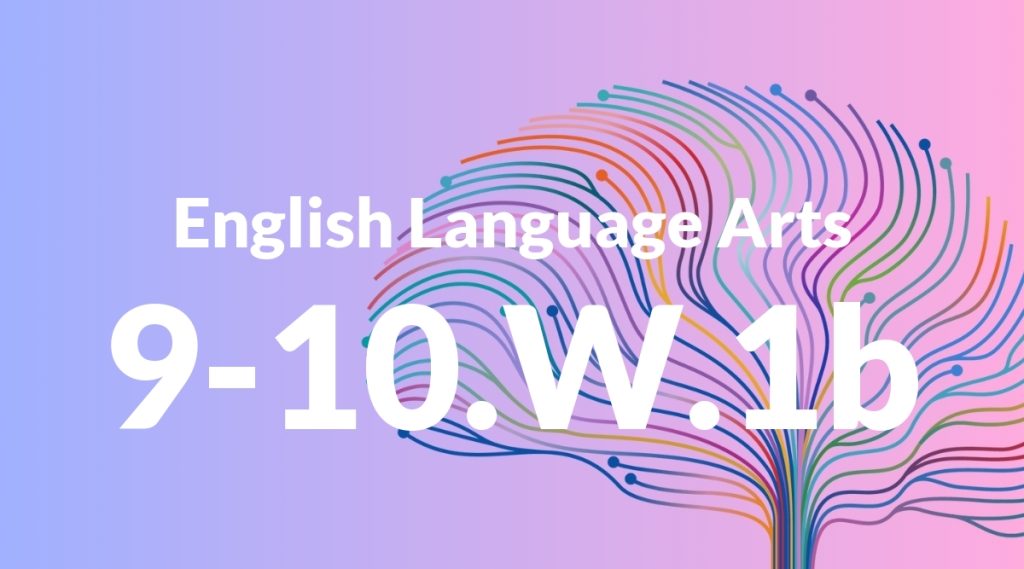Standard: 9-10.W.1b – Develop claim(s) and counterclaims fairly, supplying evidence for each while pointing out the strengths and limitations of both in a manner that anticipates the audience’s knowledge level and concerns.
Grade level: Grade 9-10
Subject: English Language Arts
Domain: Writing
Teacher Overview
This standard focuses on developing students’ ability to create well-rounded arguments by fairly presenting and supporting both claims and counterclaims. This skill is crucial for effective persuasive writing and critical thinking, as it prepares students to engage with diverse perspectives and anticipate the needs and concerns of their audience. Students should understand how to construct a simple argument, including stating a claim and supporting it with evidence. They should be familiar with basic essay structure and the concept of audience awareness.
Mastering this standard will enable students to engage in more sophisticated argumentative writing, including the ability to synthesize information from multiple sources and perspectives. They will also enhance their skills in rhetorical analysis and critical thinking.
Common Misconception 1
One common misconception is that presenting counterclaims weakens the main argument. Students might think that acknowledging opposing viewpoints undermines their own position.
Intervention 1
To address this misconception, teachers can show examples of strong arguments that include counterclaims. Discuss how these arguments are more persuasive because they demonstrate a comprehensive understanding of the topic.
Common Misconception 2
Another misconception is that evidence is only necessary for the main claim. Students might not realize that counterclaims also need to be supported by evidence to be credible.
Intervention 2
Teachers can use activities that require students to find and present evidence for both claims and counterclaims. This practice helps students understand the importance of evidence in building a balanced argument.
Prerequisite Knowledge
Students should have a foundational understanding of how to construct a basic argument, including how to state a clear claim and support it with evidence. They should also be familiar with the concepts of audience awareness and the general structure of an essay.
Subsequent Knowledge
After mastering this standard, students will be able to engage in more complex argumentative writing, including the ability to synthesize multiple sources and perspectives into a cohesive argument. They will also develop skills in rhetorical analysis and advanced critical thinking.
Instructional Activities
- Debate sessions on current events
- Peer review of argumentative essays
- Writing workshops focusing on counterclaims
- Analyzing persuasive articles and identifying claims and counterclaims
- Group discussions on controversial topics




